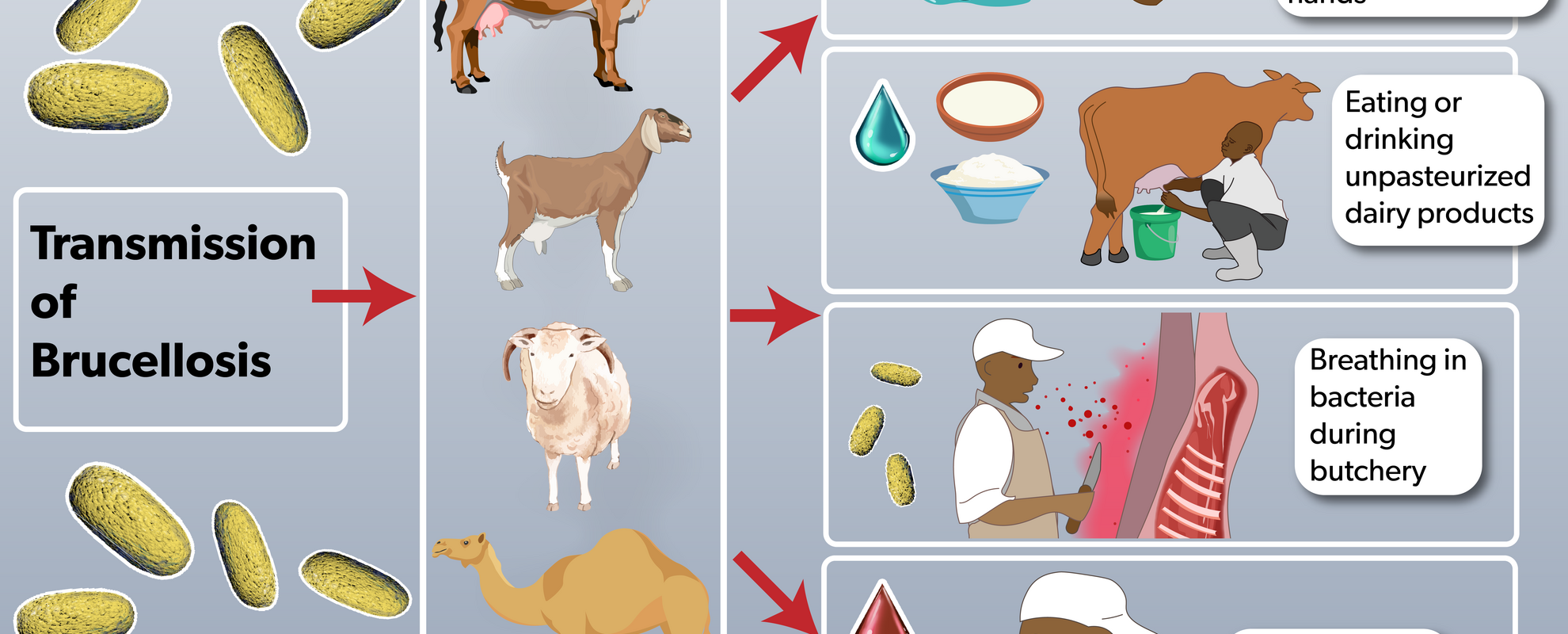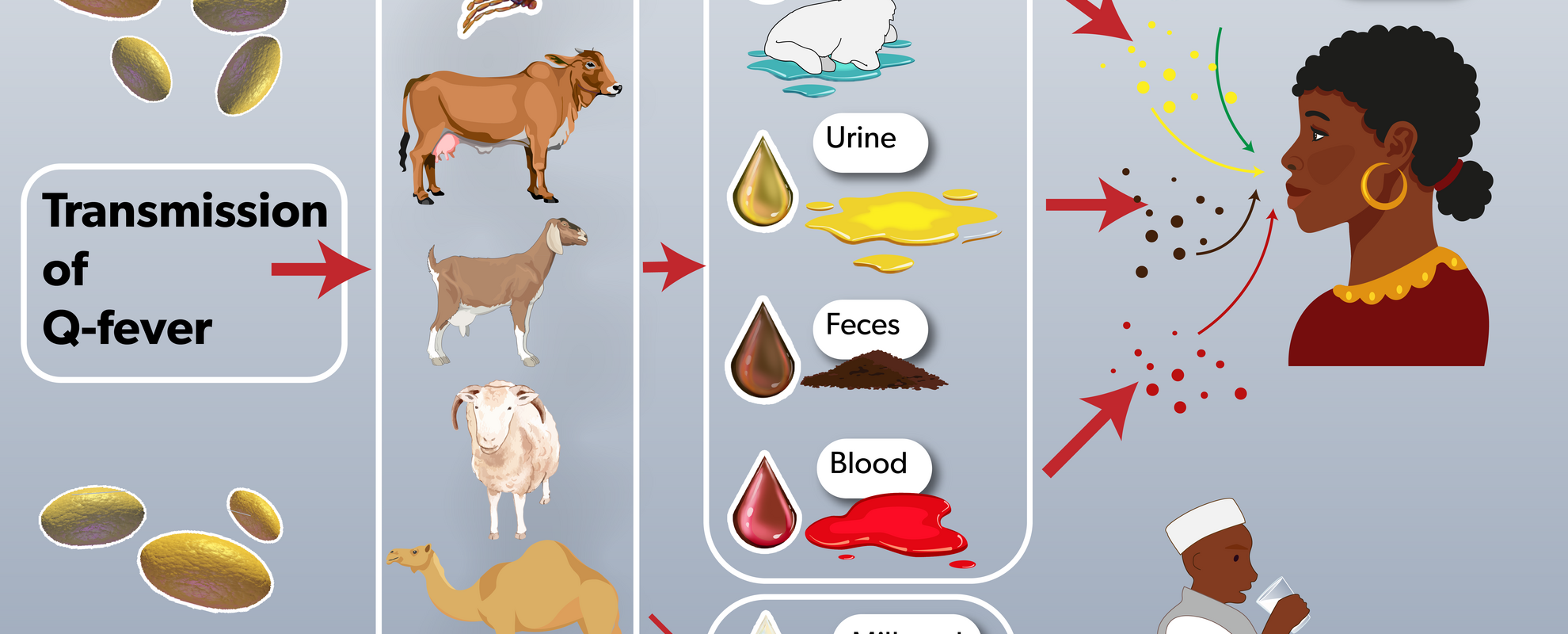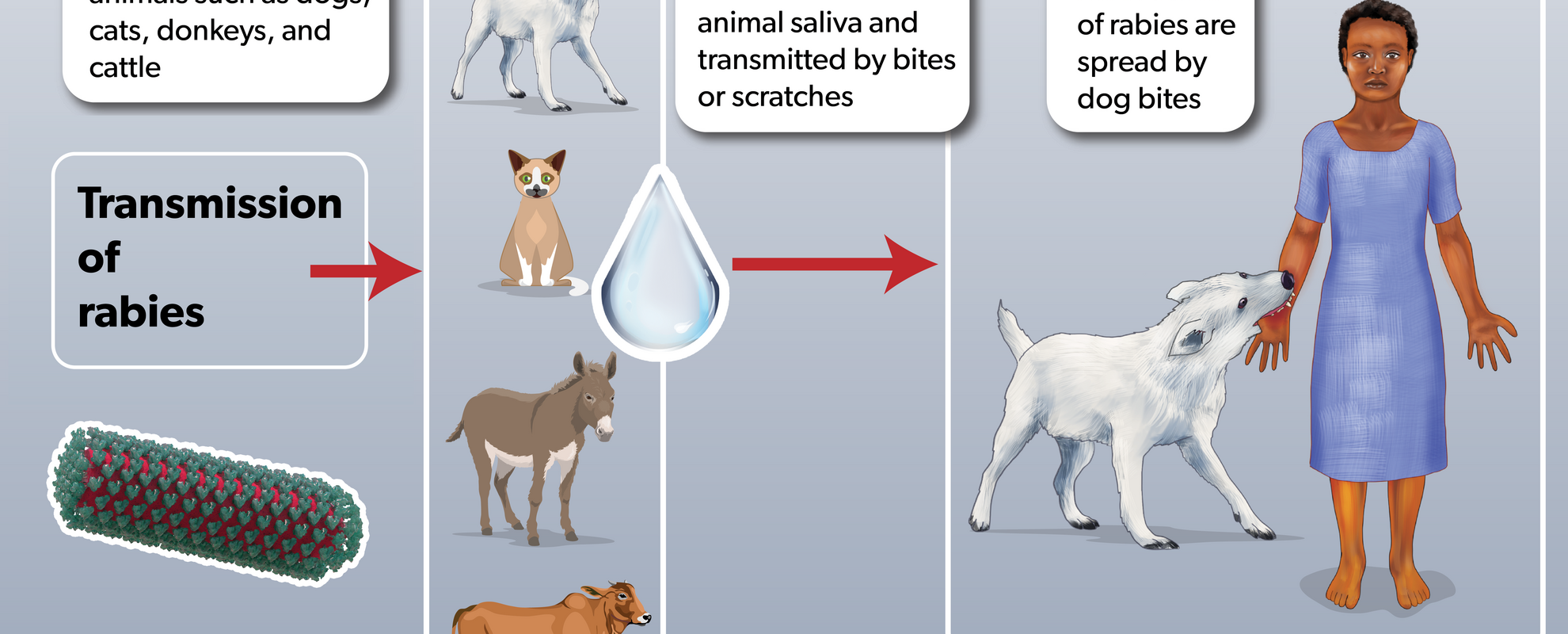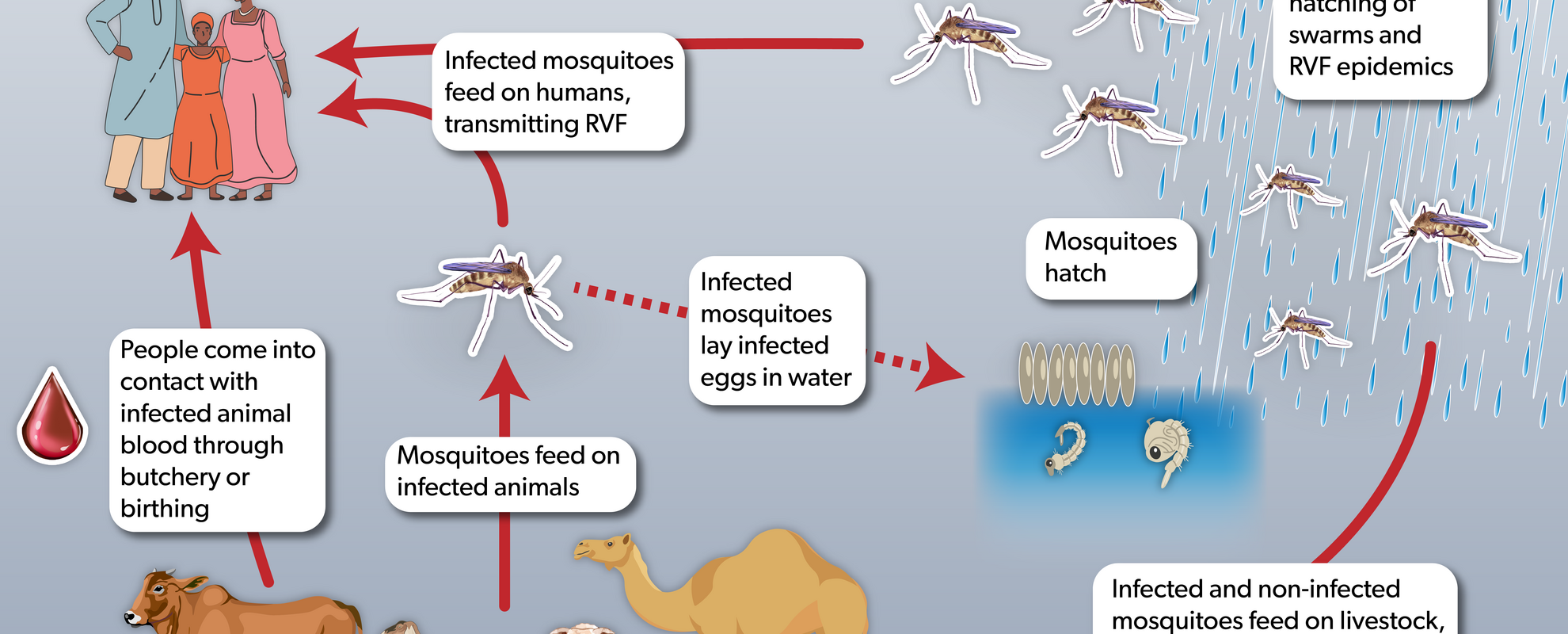Scientists estimate that 70% of emerging infectious diseases originate from animals, and 60% of the existing infectious disease are zoonotic. Zoonotic diseases are transmitted from animals to humans and can be spread through water, food, and the environment. COVID-19 is probably a good example of such a zoonotic diseases because it is thought most likely to have originated from bats. Other diseases like Ebola, Rift Valley fever, brucellosis and cysticercosis are also considered to be zoonotic. These diseases impose a huge burden on people and the global economy.
Together with national and international partners, scientists at the International Livestock Research Institute (ILRI) carry out research towards improving the control of zoonoses through zoonotic disease modelling, risk mapping, surveillance and use of decision support tools.
The annual global cost of zoonotic diseases is estimated at USD 500 billion, in terms of lives lost and economic slowdowns, compared to USD 20 billion per year for preventive actions. Increased investment in risk-based animal health services is crucial in the battle against zoonotic diseases.








